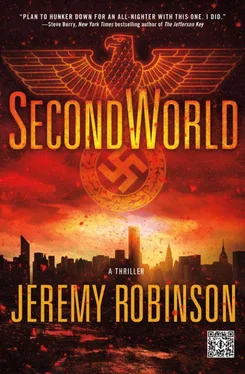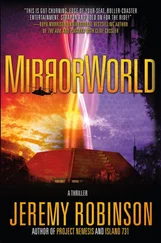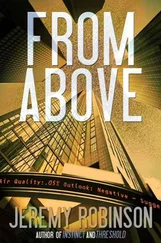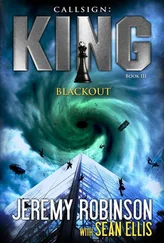The dull thud of human fists followed.
Miller stood and helped Adler up.
The thick blast door had a long, thin window. He walked to it and saw a sea of angry faces. Brodeur stood at the center of them, seething. The man shouted something, but Miller couldn’t hear him. He pointed at his ear and mouthed, “I can’t hear you.”
Brodeur just stared at him with the eyes of a predator; the eyes of a man who knew he would eventually get through this blast door and destroy his enemy.
But Miller knew better.
Though the cryogenics chamber was silent, save for the hum of the life-support systems, he knew the control center would be buzzing with the sound of a thousand bees. He pointed to his ear, and mouthed, “What’s that sound?”
Brodeur cocked his head slightly, then started shouting and fired two rounds in the ceiling. The pounding on the door ceased. The men surrounding him stopped moving. With a flash of recognition, the color drained from Brodeur’s face. He started to shout an order, but it was already too late.
Brodeur itched at his skin as it suddenly reddened.
The men around him began to flail and fall.
Brodeur took a step back, aimed his weapon at Miller through the window, and pulled the trigger, over and over.
The gunshots sounded like distant fireworks to Miller. The glass was several inches thick. He didn’t even flinch.
Brodeur pounded on the window with his fist. The blow left a white smear behind. Brodeur noticed it and looked at his hand. The skin hung loose over his bones as the liquefied meat inside slid down into his arm and pooled at his elbow. The look of horror on his face became disfigured as his muscles, blood, cartilage, and sinews separated into their elemental parts. His face drooped, and then fell away, leaving a blood-covered skull with eyes and bits of stringy flesh dripping down the sides. The eyes stared back at Miller’s, burning with rage. A moment later, the two orbs deflated and fell away. Brodeur’s liquid brain slid out of the eye sockets a moment before his body crashed to the floor, forming a large pool of human sludge along with a hundred other soldiers and the fifty white-clothed men who had already asphyxiated.
Miller fell away from the door and sat down.
Adler joined him. “We should move away from the door,” she said. “Just in case.”
Miller groaned and managed to pull himself away from the growing pool of blood surrounding the one and a half soldiers who made it into the room, but could go no farther. He lay back and closed his eyes. The morphine was wearing off. He was bleeding from, well, everywhere. He had killed his enemy, but it seemed they had done him in, too. It would just take a little longer.
But it was a good death.
Or was it?
“Did you do it?” he asked.
“Do what?”
“Save the world?”
Adler shrugged, leaned on his chest, and closed her eyes as they both slipped into unconsciousness.
WASHINGTON, D.C.
Arwen looked out the window. The view was distorted through the translucent oxygen tent, but she could see the red flakes well enough. The first flake had fallen two hours ago, and the man on the news said—between sobs—that soon, the people who were exposed to the air would suffer from iron poisoning. They would feel sick. Then better. And then sick again before dying.
But they wouldn’t even last that long. Not this time. The rate of oxidization was much faster than in Miami or Tokyo or Tel Aviv. Within the hour, the air would feel as thin as it was at the top of Mount Everest. An hour after that, only those with air supplies would survive. But with the red storm now projected to last a week—no one knew how long the effects would last beyond that—it was doubtful that many people, if any, would survive.
Arwen knew from experience that she could last days in her oxygen tent, but the idea of being alone that long only to die alone didn’t sit well with her.
She lifted up the oxygen tent and slid out of bed. Her wounds hurt a little less now, helped out some by the medication she’d been given. But she hadn’t seen a nurse in hours. Not since the first red flake fell. The medication would wear off soon.
She eyed the pony bottle Miller left for her. Part of her wanted to take it, load up a cart of oxygen tanks, and make for the hills like Miller would. But there was nowhere to hide.
An inch of red covered everything outside the window. She looked at the ground and saw some people standing in it, facing death head on.
When she saw smoke rising in the distance, she realized that not everyone was facing the end of the world so peacefully. Some people would probably die long before the air ran out. Some people were probably already dead.
As she feared Miller to be.
He wouldn’t have given up. And if there were red flakes falling from the sky, it meant he was dead.
Tears welled in her eyes, blurring her vision.
So when a distant sparkle of light caught her attention, she couldn’t tell what she’d seen.
As the newscaster’s voice suddenly grew high-pitched, Arwen wiped her eyes dry and looked in the direction the light had come from.
Up.
Then it repeated. A blue explosion of light pulsed in the sky. It reminded her of a swimming jellyfish, bursting out and then pulling in. But then it was gone again.
A moment later it repeated, but near the horizon.
Then again, above her.
And again, and again.
Soon the sky was filled with soft blue explosions.
It was beautiful.
But not nearly as beautiful as the blue sky that slowly emerged from the purple.
The newscaster was shouting now. Dancing. Hugging and kissing a camera crew.
Arwen placed her hand against the glass as the news cut to people and places all around the world. Singing and dancing filled the streets, including the one below her window.
Arwen looked up and saw a single red flake slip through the sky. It struck her window and stuck for a moment before a gust of wind carried it away.
The last red flake had fallen.
Miller wasn’t sure how long he’d been unconscious, but figured it had been several hours judging by how stiff his body felt. The flow of blood from his wounds had slowed, if not stopped. Adler lay next to him in a similar state.
He reached out and grazed her cheek with his hand. The movement caused him excruciating pain, but when her eyes flicked open and looked at him, it was worth it.
“Just to confirm,” he said. “We did save the world, right?”
She grinned weakly. “I think so.”
“You think so?”
“I was trained never to confirm something I haven’t seen with my own eyes.”
“Hey,” Miller said. “I just realized something.” He took a deep breath. “I’m breathing.”
Adler gave a nod. “I think the air came back on around the same time I activated the Bell. Brodeur wasn’t wearing a mask when he… melted.”
“Neither was I,” Miller said. “I guess seeing a man melt distracted me.”
“It happens,” Adler said with a grin.
“So,” Miller said. “Who trained you?”
“What?”
“You said you were trained to never confirm something you hadn’t seen with your own eyes. Earlier you mistakenly referred to yourself as an agent, rather than a liaison. You shoot as well as I do. So who trained you? And don’t feed me any Interpol bullshit. I’ve earned the truth.”
“My name really is Elizabeth Adler,” she said. “As is my grandmother’s, and that really is her journal. And I had no idea Gerlach was my grandfather. All that was true.”
“ But ,” Miller urged.
A loud clunk from the door made both of them jump. Gears within the wall ground. The door slid up with a groan.
Читать дальше












